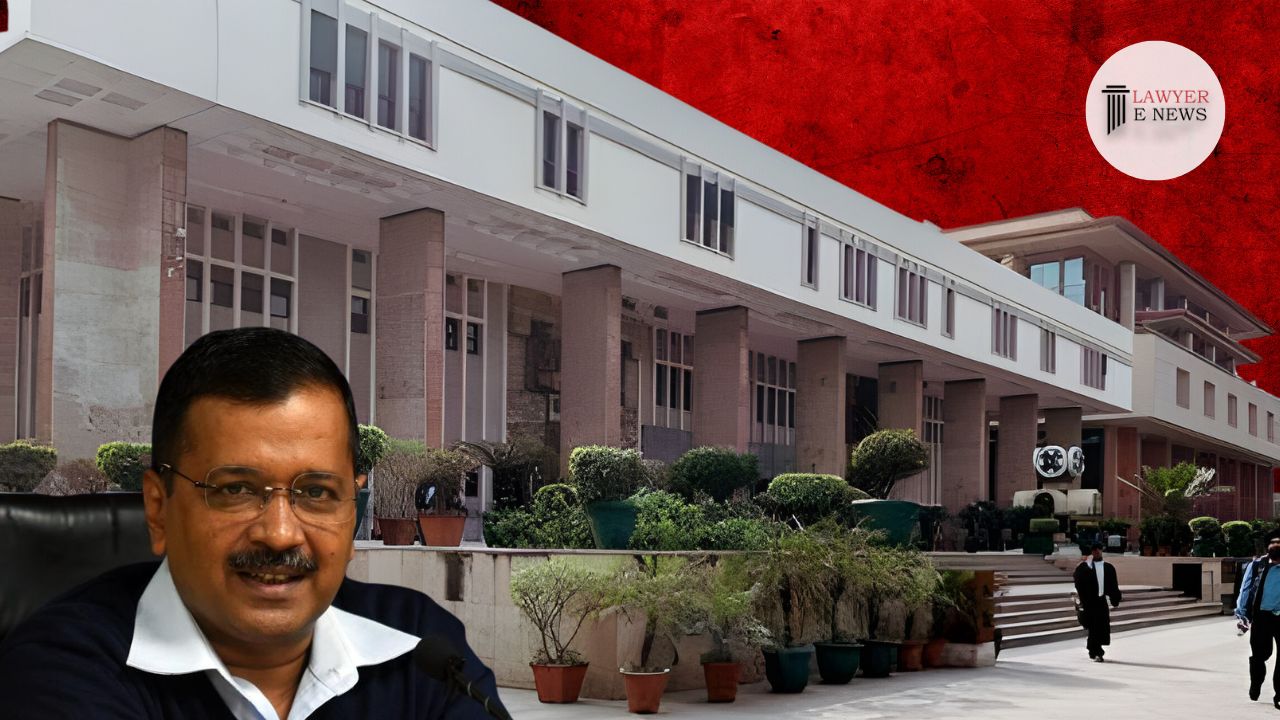-
by Admin
17 February 2026 2:34 PM



The Delhi High Court dismissed the petition challenging the arrest of Delhi Chief Minister Arvind Kejriwal. The Court held that statements recorded under Section 50 of the Prevention of Money Laundering Act (PMLA) are admissible and can establish a formidable case against an accused in money laundering. This decision aligns with precedents set by the Supreme Court in various cases like Rohit Tandon v. Directorate of Enforcement and Vijay Madanlal Choudhary v. Union of India, reinforcing the admissibility of such statements.
The case revolves around allegations of corruption in the formulation of the Delhi Excise Policy 2021-22. The prosecution claimed that the policy was designed to grant favours in exchange for kickbacks, which were then used for funding the Aam Aadmi Party’s (AAP) election campaign. The Court noted that Kejriwal, in his capacities both as an individual and as the National Convenor of AAP, is alleged to have been involved in the laundering of this money.
Challenge Against Arrest: Kejriwal’s legal team argued that his arrest was unjust, in violation of Section 19 of the PMLA, and was conducted with political motives, especially considering the proximity to the Lok Sabha Elections 2024.
Submissions by ED: The ED countered that they had followed all legal protocols, asserting the involvement of Kejriwal in a larger conspiracy of money laundering linked to the Excise Policy. They submitted various statements and evidences indicating Kejriwal's alleged involvement.
Admissibility of Statements under Section 50 of PMLA: The Court referred to the Supreme Court's decision in the case of Rohit Tandon, asserting that such statements are admissible and can form a strong basis against the accused in a money laundering case.
Credibility of Statements of Witnesses and Approvers: Addressing the concerns over the reliability of witness statements, the Court cited the Suresh Chandra Bahri case to emphasize the legally recognized inducement of pardon granted to an approver.
Arrest and Remand Under PMLA: In discussing the legality of Kejriwal’s arrest and subsequent remand, the Court highlighted compliance with the guidelines established in the Pankaj Bansal case and noted the necessity of the arrest given the non-cooperation of the accused in the investigation.
Timing of Arrest: Addressing the argument regarding the timing of the arrest, the Court observed that the delay in investigation caused by the non-cooperation of the petitioner justified the arrest, irrespective of the political landscape.
Necessity to Arrest: The Court recognized the necessity of arresting Kejriwal, given his repeated refusal to comply with investigation summons, and the need to confront him with the evidence gathered.
Decision: The Court dismissed the petition and upheld the validity of Kejriwal’s arrest and the subsequent remand order, stating that they were in line with legal requirements and precedents.
Date of Decision: April 9, 2024
Arvind Kejriwal v. Directorate of Enforcement
